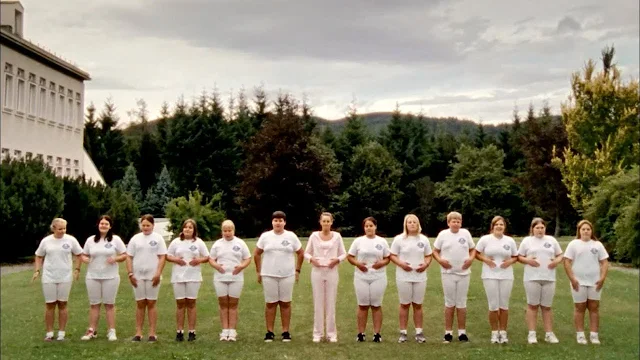Cast: Melanie Lenz, Verena Lehbauer, Joseph Lorenz, Michael Thomas, Viviane Bartsch, Maria Hofstätter, Leopold Schiel, Rainer Luttenberger, Hannes A. Pendl. Screenplay: Ulrich Seidl, Veronika Franz. Cinematography: Edward Lachman, Wolfgang Thaler. Production design: Andreas Donhauser, Renate Martin. Film editing: Christof Schertenleib.
The third film in Ulrich Seidl's Paradise trilogy completes the story of a family of women: The mother, Teresa, was the focus of Paradise: Love (2012); the aunt, Anna Maria, that of Paradise: Faith (2012); and young Melanie's experiences at a "fat camp" are meant to be taking place at much the same time as Teresa is experiencing pleasures of the flesh in Kenya and Anna Maria is proselytizing for Catholicism in Austria. Like the other two films, Paradise: Hope is scathingly satirical about the inability of human beings to satisfy their wants and live up to their ideals. It's a discomfiting movie, as are the other two films in the trilogy.



